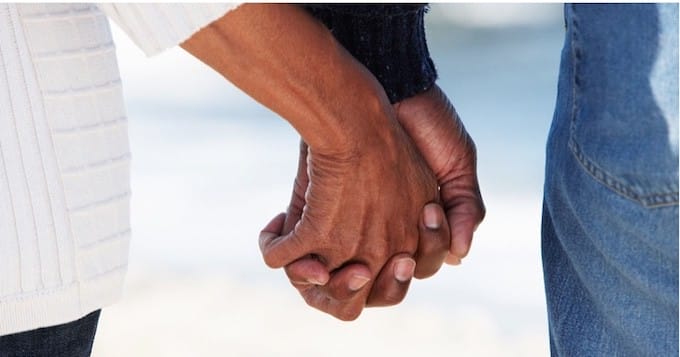
By Stacy M. Brown, NNPA Newswire Senior Correspondent
@StacyBrownMedia
NNPA NEWSWIRE — AARP, the nation’s oldest and largest nonprofit dedicated to empowering Americans 50 and over, and the National Newspaper Publishers Association (NNPA), the trade association of the Black Press of America, held a briefing to help provide critical information for those most at-risk and impacted by the novel coronavirus.
The 45-minute webinar addressed tools and resources to help the African American community navigate through the pandemic and included a panel of experts in the fields of health, caregiving, financial security, and entrepreneurship.
Lorraine Miller and Chris Brown of Burrell Communications in Chicago coordinated the webinar, which was titled, “AARP – NNPA COVID-19 Black Media Update.”
Jointly hosted by NNPA President and CEO Dr. Benjamin F. Chavis, Jr., and AARP Vice President of Multicultural Leadership, Shani Hosten, the live program also marked the first appearance by renowned infectious disease expert and Meharry Medical College President Dr. James Hildreth as a member of the NNPA Coronavirus Task Force and Resource Center.
“Data is critical, and we’ve got to have testing, testing, testing,” Dr. Hildreth stated.
“Testing is our best hope to save lives. I’ve been insisting this to the mayor of Nashville, the governor of Tennessee, and anyone who will listen. If we don’t do widespread testing, people are going to die, and that’s the bottom line,” he said.
As of the webinar, more than 609,000 Americans have contracted COVID-19, the deadly disease that’s caused by the coronavirus.
There have been at least 25,603 deaths, and based on incomplete data, African Americans are disproportionately affected and represent the majority who’ve died from the virus.
“This is a particularly critical time for the African American community,” Hosten stated, noting the various resources AARP has developed, including a Black resources tool kit on its website.
Chavis stated that it’s essential to get accurate information out as much as possible to the Black community.
“We want to make sure that during this pandemic, we get information out that will help save Black lives,” he said.
Rita Choula, AARP’s director of caregiving and caregiving information resources, said providing care to family members has its own share of problems. Still, the coronavirus has made that all the more challenging.
“People are stressed and worried, not only about caring for themselves but protecting and caring for someone in the home or someone long distance,” Choula stated.
“It’s very important that there is increased conversation with nursing facilities through virtual visitation and phone calls, which is what AARP is advocating.”
Cristina Firvida, AARP’s vice president of financial security and consumer affairs, noted that AARP has continued to advocate at the state and federal level for everyone struggling financially during the pandemic.
“Our friends, our families are hurting. We focused on how we can get more money in the hands of individuals as well as businesses,” Firvida said, adding that AARP lobbied that seniors also receive $1,200 stimulus payments.
She said the original bill allowed for seniors to receive just $600.
Reginald Nance, AARP’s New York associate state director of multicultural outreach, noted the importance of fraud protection and emphasized that AARP has organized various forms of assistance for seniors nationwide.
“AARP community connections have mutual aid and support groups where they might help with grocery shopping, financial assistance, or emotional support,” Nance stated.
Dr. Hildreth wrapped up the webinar by noting that the federal government fell asleep at the wheel and could have prevented much of the mayhem caused by the coronavirus.
He called the spread of COVID-19 “entirely predictable,” and noted that the lack of planning by the federal government obviously was bad news for African Americans.
Dr. Hildreth also stated his frustration with those who imply that African Americans are more susceptible to the virus.
“Absent a vaccine or a drug, the only way to protect our communities, which means to keep the virus out, is we have to have testing,” Dr. Hildreth stated.
“We need to do what South Korea did, which is to identify the positive tests, do contact tracing, and screen everybody. We should have a nationally coordinated response because viruses don’t respect orders,” he said.
Dr. Hildreth continued:
“You might have one state controlling the virus, but if the neighboring states don’t do that, we’ll find ourselves right back where we started. Data is critical. Many are saying that African Americans are more susceptible to the virus, and that’s absolutely not right.
“We may be more susceptible to severe diseases and death, but the evidence doesn’t support that Black people are more susceptible to the virus. The only way to prove that is to have an equal number of African Americans and white exposed to the virus at the same time and determine who got infected at a higher rate. Without data to support this, those statements drive me crazy. We have to have more tests.”
Updated information on the coronavirus came be found at www.aarp.org/coronavirusand at the NNPA’s www.BlackPressUSA.com COVID-19 tab.


